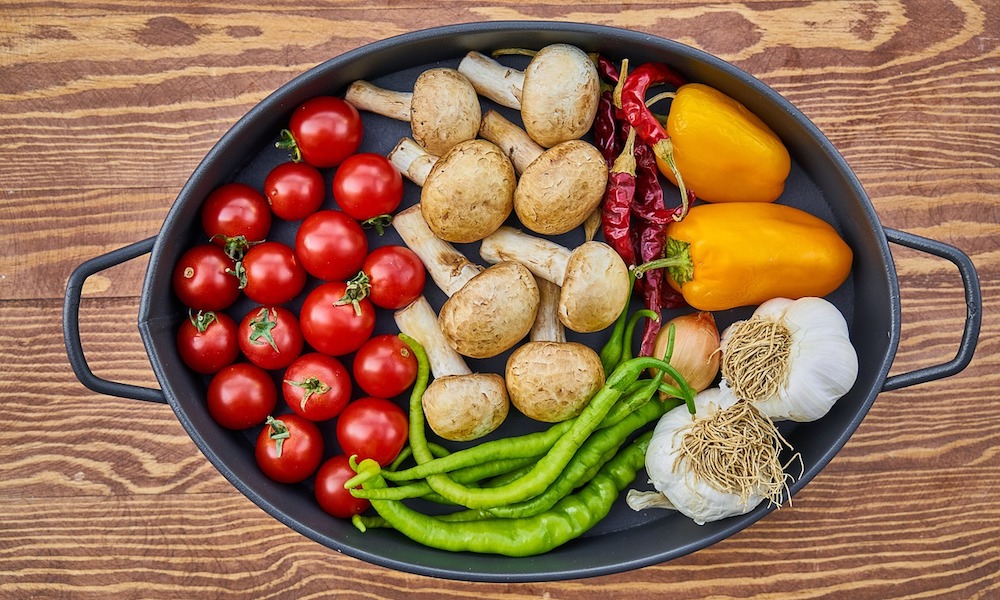
It’s International Tabletop Game Day and I am lucky enough to be at a friend’s house to run a rousing game of Pasión de las Pasiones. I walk in to the smell of something delicious and the sizzle of a hot pan on the stove. Fellow gnome Camdon is standing in the kitchen and he’s got piles of chopped onions, carrots, and celery while the chicken cutlets in front of him brown with a touch of salt and pepper, and he’s got capers and dijon set aside to add in once everything is combined. We chat, and then we sit down to game and eat some wonderful food.
Running the game, I lay out my thoughts – there’s a pile of relationships, all tangled together. There’s the glitz and glitter and riches of the telenovela, shining for our theoretical audience. There’s the evil twin, working at cross purposes. I’m throwing all of these into the sizzling pan of El Jefe’s illicit alcohol smuggling operation, with a little extra seasoning from the helicopter that is about to explode. We chat, and we laugh, and we jump in to play a wonderful game.
 In the same way that the practiced cook will trust themselves to create a meal, the practiced GM can drop a game. And in both cases it comes down to the same ideas – experience, practice, and trusting yourself. If I am going to toss together a meal, I need to have an idea of what ingredients I have on hand and what will work together to create a harmonious meal. When I’m running a game, I need to have an idea of what genres and tones of games I am comfortable running and what kind of tropes I can use or subvert to create a shared story experience that matches the expected tone. It’s fun adding that one flavor that makes the dish pop in the same way it brings me joy to throw in the twist that makes all my players gasp. And sometimes, when you’re tired, it’s perfectly acceptable to have a sandwich instead of doing anything fancy – just like it’s totally fine to run that game that is exactly and precisely in your comfort zone, that you don’t have to think about. (Except, maybe sometimes, grill it and put an egg on it. The sandwich, not the game.)
In the same way that the practiced cook will trust themselves to create a meal, the practiced GM can drop a game. And in both cases it comes down to the same ideas – experience, practice, and trusting yourself. If I am going to toss together a meal, I need to have an idea of what ingredients I have on hand and what will work together to create a harmonious meal. When I’m running a game, I need to have an idea of what genres and tones of games I am comfortable running and what kind of tropes I can use or subvert to create a shared story experience that matches the expected tone. It’s fun adding that one flavor that makes the dish pop in the same way it brings me joy to throw in the twist that makes all my players gasp. And sometimes, when you’re tired, it’s perfectly acceptable to have a sandwich instead of doing anything fancy – just like it’s totally fine to run that game that is exactly and precisely in your comfort zone, that you don’t have to think about. (Except, maybe sometimes, grill it and put an egg on it. The sandwich, not the game.)
So what is the point of thinking of GMing the way we think about cooking? The thing about cooking is that anyone can learn how to cook if they don’t already know. Your taste buds will guide you as you learn, and there are so many recipes out there to help you get started. Some you’ll love and you’ll make again and again and get so comfortable with you’ll be willing to start tweaking. Some you’ll make and not see a need to make again – they just don’t hit the right flavor profile, or they were far more work than they were worth.
It’s really no surprise that we call this blog the stew.
What’s your best GMing recipe? Soup’s on!
















